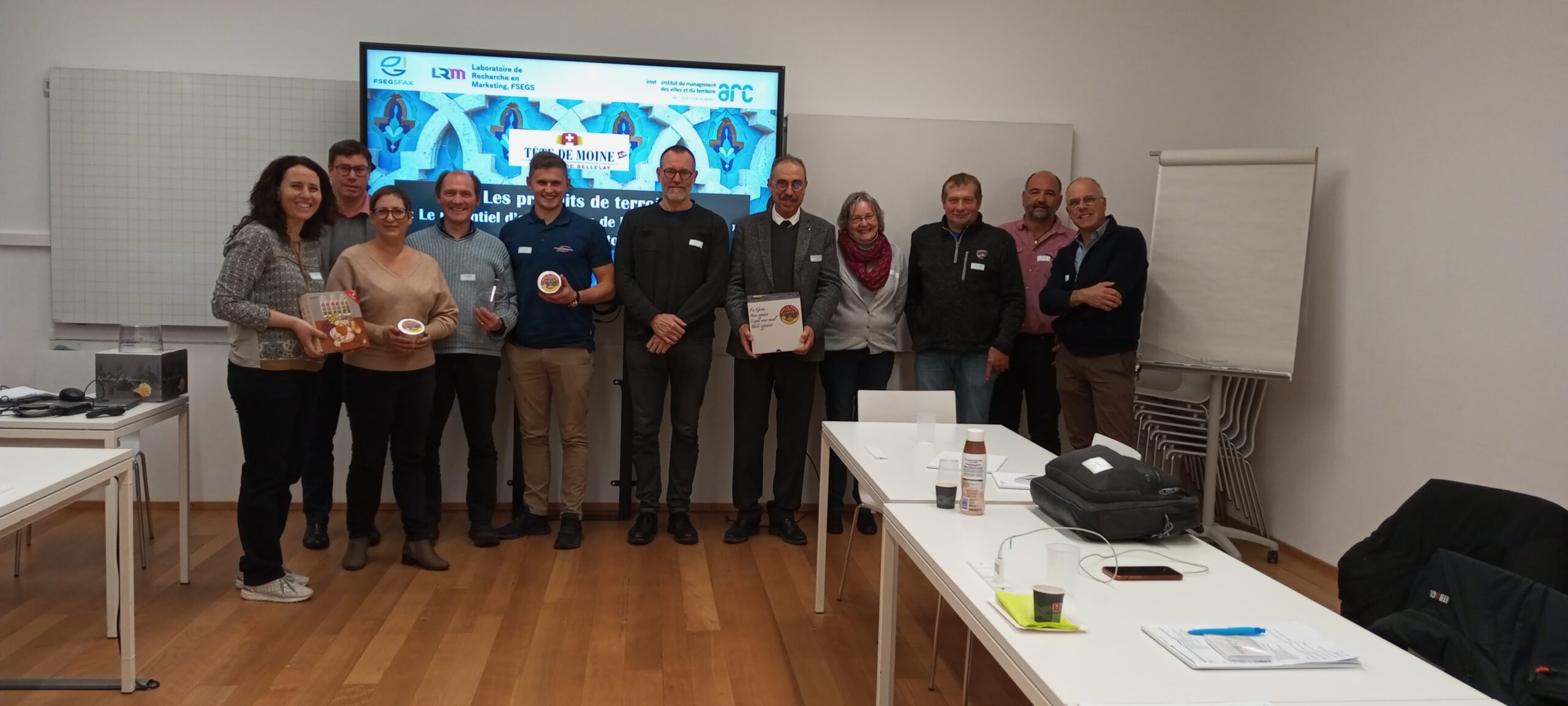

Impact of the Leading House funding during 2021-2024

Key takeaways
The globalization of markets and increased competition have driven SMEs to explore international opportunities. However, the internationalization process poses significant challenges for SMEs, which face more obstacles than their larger counterparts. These challenges include limited human, financial, and informational resources, as well as specific marketing barriers related to product adaptation, pricing, distribution, and logistics in foreign markets. Furthermore, SMEs specializing in terroir-based agri-food products, such as olive oil and artisanal cheeses, encounter additional complexities due to perishability, food safety risks, and stringent quality standards. Within the framework of this project, we focused on the international development of two flagship local product “ produits de terroir” in their countries of origin. Tunisia is a leading exporter of olive oil, with approximately 75% of its production exported internationally. Similarly, La Tête de Moine AOP, a Swiss cheese, has achieved significant export success, with ~60% of its production sold internationally. These examples illustrate the potential for SMEs in the agri-food sector to capitalize on global demand despite inherent challenges.
The globalization of markets and increased competition have driven SMEs to explore international opportunities. However, the internationalization process poses significant challenges for SMEs, which face more obstacles than their larger counterparts. These challenges include limited human, financial, and informational resources, as well as specific marketing barriers related to product adaptation, pricing, distribution, and logistics in foreign markets. Furthermore, SMEs specializing in terroir-based agri-food products, such as olive oil and artisanal cheeses, encounter additional complexities due to perishability, food safety risks, and stringent quality standards. Within the framework of this project, we focused on the international development of two flagship local product “ produits de terroir” in their countries of origin. Tunisia is a leading exporter of olive oil, with approximately 75% of its production exported internationally. Similarly, La Tête de Moine AOP, a Swiss cheese, has achieved significant export success, with ~60% of its production sold internationally. These examples illustrate the potential for SMEs in the agri-food sector to capitalize on global demand despite inherent challenges.
The Institute of Cities and Regional Management at La Haute école de gestion Arc (HEG Arc) // The University of Applied Sciences of Western Switzerland (HES-SO) is engaged in international management research and practices. Professor Dr Lamia Ben Hamida research interests focus on international economics and sustainable global expansion of businesses. Research collaborator Stefanie Hasler has an extensive experience in international supply chain management within multinational corporation firms.
The Institute of Marketing at the Faculty of Economics and management of Sfax (FSEGS) // University of Sfax, Tunisia is involved in research on international marketing. Professor Dr. Romdhane Khemakhem and his collaborator Dr. Hana Siala conduct marketing research in international development of local products abroad.
La HEG Arc and the FSEGS thus form a complementary partnership.
The Leading House MENA program seeks to strengthen scientific collaborations between Switzerland and countries in the Middle East and North Africa (MENA). Through this initiative, we have successfully established a robust research partnership with the University of Sfax, fostering collaborative projects that bridge academic expertise between Tunisia and Switzerland. Additionally, the program has enriched our understanding of the Sfax region and its olive oil heritage and facilitated the sharing of experience with Switzerland’s Tête de Moine AOP. By fostering mutual learning and innovation, the program has established a solid foundation for sustainable, long-term cooperation with Tunisia, driving both interdisciplinary scientific advancement and international collaboration.
This research project provides valuable insights into the export strategies of Tunisian olive oil and Swiss cheese “La Tête de Moine AOP” by applying the Resource-Based View (RBV) theory and incorporating territorial competitive advantage. The RBV, as proposed by Barney (1991, 2001), conceptualizes firms as collections of valuable tangible and intangible resources that, when effectively managed, determine competitive advantage and export performance. The study reveals significant differences between the two terroir products sectors, emphasizing the crucial role of institutionalized ecosystems in export success. While territorial advantages are more distinctly leveraged within the Tête de Moine AOP sector, they are less prominent in the olive oil industry. These variations in export trajectories offer valuable insights for developing targeted managerial strategies, enabling both sectors to use their unique terroir advantages in a complementary and synergistic way. The territorial dynamic creates a competitive advantage, strengthening la Tête de Moine AOP’s international market position. Whereas, in the context of the olive oil sector’s international development strategy, the territorial aspect is illustrated by several small operators, primarily family businesses, who are eager to emphasize their regional identity. There is a need for a robust territorial ecosystem in the Tunisian olive oil industry to enhance international competitiveness and manage market volatility.
The research opens avenues for future studies, particularly in examining the dynamic interactions between resources and capabilities and their impact on international performance in other local product sectors.
This international experience provided us with a valuable opportunity for professional development, contributing to international business research, and enriching our networks and resources, while also offering considerable personal and professional satisfaction. This led to scientific publications and conference presentations, thereby contributing to the advancement of research in the fields of international business studies.
In addition, this collaboration proved successful and resulted in the development of an additional international and interdisciplinary project. The HEG Arc in collaboration with the FSEGS, developed a new project entitled “Understanding International Management in the Era of Digital Transformation”. This research project aims to explore the integration of digital technologies in improving the management and global promotion of traditional Tunisian olive oil products, while providing interactive training for final-year students from both institutions. Project objectives include strategic management, international marketing and supply chain of this local product, while preserving its distinctive attributes. This research addresses the complex interplay between digital transformation and the global market for artisanal and regional products, examining both the challenges and opportunities presented by technological advances in international business contexts.

